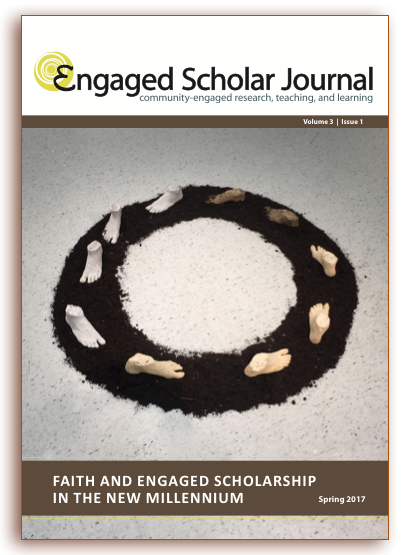Conversational Narratives at Quixote House: How Released Offenders and Religious Members Build Community and Find a New Identity in Winnipeg
DOI:
https://doi.org/10.15402/esj.v3i1.238Keywords:
community, parole, housing, home, religious peacebuildingConversational Narratives at Quixote House, How Released Offenders and Religious Members Build Community and Find a New Identity in WinnipegAbstract
One of the most worrisome situations in current societies is the failure of their correctional system. Even though jails and imprisonment institutions, at least in developed countries, do not have the shameful conditions which characterized them in the past, the high rate of recidivism shows that the correctional function that morally justifies their existence, with its big budget, has not been successful. Individuals that enter into the correctional system barely escape from it during life. However, there is a house in Winnipeg that is making a difference. This essay is about this house, Quixote House, named after Don Miguel de Cervantes’ novel hero, and my engagement to build community in it through conversational narratives. Also this essay shows how conversational narrative plays a role in healing trauma and building a community through which released offenders can find a new identity. For this purpose, it is necessary to set first a theoretical context, addressing the situation of recidivism and parole releases and the efforts to reinsert former offenders into society, which entail many challenges such as clean and affordable housing. Then, there is an explanation of how storytelling addressing trauma and community building, the importance of emotions in this kind of narrative, and the possibility of storytelling in ordinary life, especially in finding personal identity. Following Lonergan’s approach, there is a description about Quixote House and my engagement as priest but also as a another member of the community in which parolees can find a new identity.
Downloads
Published
How to Cite
Issue
Section
License
Authors who publish with this journal agree to the following terms:
- Authors retain copyright and grant the journal right of first publication with the work simultaneously licensed under a Creative Commons Attribution License CC BY 4.0 that allows others to share the work with an acknowledgement of the work's authorship and initial publication in this journal.
- Authors are able to enter separate, additional contractual agreements for the non-exclusive distribution of the journal's published version of the work (e.g., post it to an institutional repository or publish it in a book), with an acknowledgement of its initial publication in this journal.
- Authors are permitted to post their work online (e.g., in an institutional repository or on their website) after the publication of their work in the Engaged Scholar Journal.
- Please note that while every opportunity will be taken to ensure author participation in the editing process, due to time constraints final copyediting changes may be made before publication to ensure APA adherence throughout all submissions.




